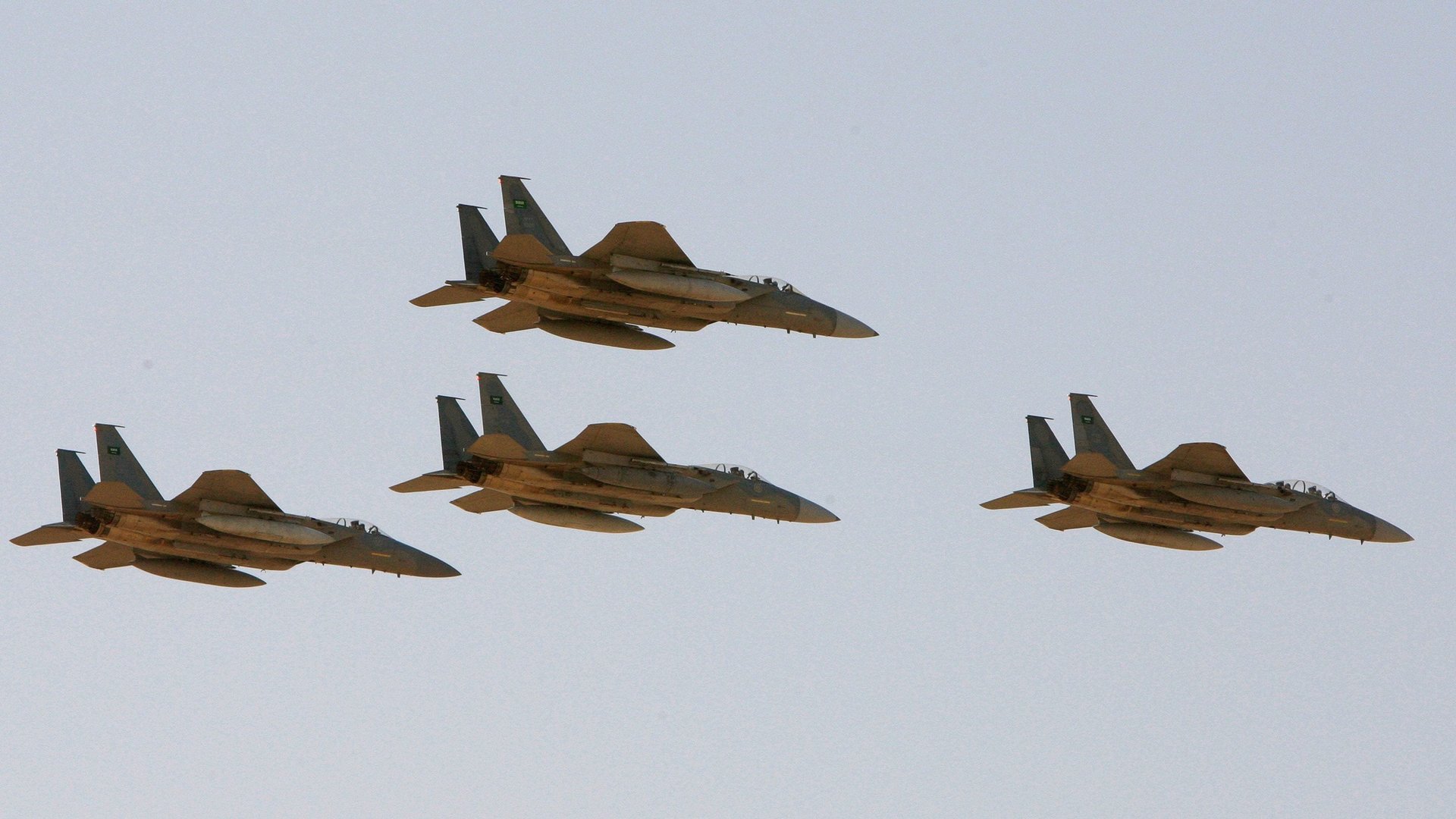US Senate: No military support for Saudi war in Yemen. Pentagon: LOL
Just 16 days after a bipartisan group of US senators approved a resolution to end military support for Saudi Arabia’s involvement in the civil war in Yemen, the Trump administration is doing what appears to be exactly the opposite.


Just 16 days after a bipartisan group of US senators approved a resolution to end military support for Saudi Arabia’s involvement in the civil war in Yemen, the Trump administration is doing what appears to be exactly the opposite.
The Dec. 19 measure passed 56-41, and was the first time the Senate has invoked the War Powers Act of 1973, which requires the president to consult with Congress “in every possible instance” before sending troops into conflict. The four-year-old conflict in Yemen broke out when the Houthis, a rebel group backed by Iran, seized the capital city of Sana’a. A Saudi-led coalition intervened and an estimated 50,000 people have died since. Nearly 12 million are reported to be on the verge of starvation.
“Today we declare we will not long participate in the Saudi-led intervention in Yemen which has caused the worst humanitarian crisis on Earth, with 85,000 children starving to death,” Bernie Sanders of Vermont said on the Senate floor. “Today we tell the despotic regime in Saudi Arabia that we will no longer be part of their military adventurism.”
The resolution was largely symbolic (GOP leaders blocked the House from taking up any Yemen-related legislation for the rest of the year), and the US Air Force today (Jan. 3) issued a request seeking suppliers to provide airplane parts—horizontal stabilizers, fuel lines, circuit-card assemblies, air inlets—to keep Saudi F-15 jet fighters flying.
“This solicitation provides a direct counter to the claims the US makes at times, that if the US didn’t sell weapons to Saudi Arabia, Russia and China will,” Andrea Prasow, deputy Washington director at Human Rights Watch, told Quartz. “But these weapons systems are all from US manufacturers and they require US parts, and they can’t get those from Russia or China. It’s useful for people to understand that even if Congress were to ban sales [to Saudi] tomorrow, it wouldn’t significantly alter the defense industry’s relationship with Saudi Arabia.”
Saudi Arabia has the third-largest fleet of F-15s in the world, behind only the US and Israel. Since March 2015, Saudi and coalition aircraft have carried out over 16,000 air strikes according to human-rights groups, nearly one-third of which have hit civilian sites including hospitals, weddings, and water-desalination plants. In August, a Saudi-led coalition warplane bombed a school bus in northern Yemen, killing 51 people, 40 of them children. The coalition blamed “mistakes in compliance to the rules of engagement.”
“The Saudis have prosecuted the war in Yemen with little regard for the United States’ views while simultaneously demanding the Pentagon’s logistical support and the uninterrupted flow of munitions,” Steven Cook of the Council on Foreign Relations wrote recently. As of November, US tankers no longer refuel coalition aircraft over Yemen. Yet the US military continues to provide maintenance, tech support, and training to the Royal Saudi Air Force, as investigative journalist Ken Klippenstein has reported.
It would be difficult to impose restrictions on Saudi Arabia use of US-supplied materiel writ large, said Scott Paul, Oxfam America senior humanitarian policy advisor.
“If your existing contract is for horizontal stabilizers for F-15s, how do you legislate that? Yes, it’s OK to provide horizontal stabilizers for F-15s if they’re not fighting in Yemen?” he told Quartz. “Members [of Congress] have been uneasy writing off entire defense contracts with the Saudis. They would rather find a more precise way to extract the US from its role in the conflict in Yemen.”
The public conversation around the US-Saudi defense relationship has made it out to be an all-or-nothing proposition. The F-15 procurement notice shows a bit of the “humdrum, everyday foundational piece that isn’t really entering the conversation,” Paul said. Military cooperation with Saudi Arabia will certainly continue in a broad sense, especially as the US has five strategic bases in the kingdom. However, he continued, “there are a lot of people who take exception to the fact that this alliance is uncontroversial.”
In September, US secretary of state Mike Pompeo said the Saudi-led coalition in Yemen was “undertaking demonstrable actions to reduce the risk of harm to civilians and civilian infrastructure.” Pompeo’s statement drew an immediate rebuke from California Democratic congressman Ro Khanna, who called it “a farce.”
Some legislators are now “trying to reshape the defense relationship around shared interests as opposed to a blank check,” said Paul.
Nevertheless, said Andrea Prasow, “This administration doesn’t intend to change its relationship with Saudi Arabia.”